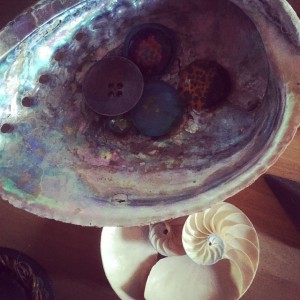
Current Hearts of Tabat wordcount: 119954
Total word count for the week so far (day 6): 23568
Total word count for this retreat: 70229
Worked on Hearts of Tabat, “Moderator,” untitled piece
Works finished on this retreat: “California Ghosts,” “My Name is Scrooge,” “Blue Train Blues,” “Misconceptions of Gods and Demons”
Taught week 3 of the Writing F&SF stories class, prepping to teach Delivery & Description tomorrow.
We have no water at the moment, or at least a pump is broken and we must conserve what we have in case of fires. Hopefully fixed soon, but I drove into Santa Cruz this afternoon and had a nice chat with the guy at the Pure Water store, who recommended all sorts of local places and doings.
I have been reading and reading here. I was watching no TV but Wayne and I usually watch Big Brother each year, so we started watching it while he was here and now have been watching it together while Facetime-ing. Yes, we are huge geeks.
From “Never Volunteer”:
“This is the Other Side,” [Dustin] said. I swear I could hear the capital letters.
“Like with ghosts?”
He shook his head and rolled his eyes. “Not at all,” he said, but didn’t explain anything beyond that. He held out his hand. “Come on.”
“What, you’re not going to carry me without my say so anymore?”
He gestured around himself. “I’m much less worried about you running away here.”
He did have a point. I rolled to my knees and stood up, ignoring his outstretched hand.
I looked around. It was a little like being on the set of an old movie, one where the landscape had been manicured to the point of knowing that somewhere, lurking in the underbrush, was a horde of gardeners with trimming shears in hand.
But here, apparently, all of that was natural. As were the jewelbright bees and birds. When the unicorn appeared, my inner 12-year-old-girl swooned. It trotted towards us and I had never seen anything so pretty in all my life: flowing mane, opalescent horn and horns, great brown eyes with enough lashes that you wondered exactly how it saw through all that.
“Henri,” Dustin said.
It was, apparently, a salutation, because the unicorn nodded before it turned to sweep me up and down with a cynical eye.
“This is it?” it said. Its voice was high-pitched and epicine; only the name made me think it was male.
“You are being rude,” Dustin said. His voice sounded resigned, as though it were the sort of thing he’d said to Henri to the point where both of them were tired of it.
Henri had no intention of quitting. He shook his mane, flipping it back out of his eyes. Was it entirely accident that the sun shone on the tip of his horn, that the gesture made him seem otherworldly graceful, that his mane flowed like creamy froth, inviting the touch?
But I wouldn’t have fondled that unicorn for all the tea in China. He was clearly an asshole.









2 Responses
Malia Kawaguchi liked this on Facebook.
Sandra Odell liked this on Facebook.